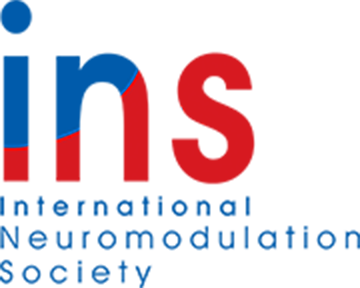Argentinean Neuromodulation Society (SANE) - HomeSociedad Argentina de Neuromodulación (SANE) Board of Directors Follow Sane Neuromodulación on: Facebook http://www.sane.org.ar/ Historical
Announcment (2018): Flyer (in Spanish) Past EventsIII Ibero-American Meeting on Neuromodulation – RIAN 2023 November 30 - December 1, 2023
Read an overview of the following 2014 event in an article by INS President Simon Thomson, MD in NeuroTarget (in Spanish, followed by a translation in English) International Neuromodulation Conference Meeting Topics: The Provincial Program of Neuromodulation of the Province of Buenos Aires (PPNM) (INS Newsletter Summer 2013) Director: Juan Carlos M. Andreani, MD Neuromodulation techniques are increasingly employed worldwide but in spite of their undeniable benefits, their indications are not completely outlined and are evolving. For this reason, for optimal results, sufficiently trained professionals are needed to perform or indicate their use. With this in mind, in the province of Buenos Aires, Argentina, the Provincial Program of Neuromodulation (PPNM) was organized two years ago with the objective of supervising indications for neuromodulation, optimizing results and increasing cost-effectiveness by organizing and training professional staff. The PPNM is a governmental organization under the Ministry of Public Health of the Province of Buenos Aires, which comprises 15.3 million people in a region of 307.5 square kilometers. Different centers that provide rehabilitation, neurological treatment, and pain management work in association through the PPNM, which is directed by qualified professionals in neuromodulation. Within this structure, patients are selected, operated on, and followed up. The intent is to open a PPNM branch in each of 12 health districts, under central PPNM supervision, in order to contain costs and facilitate follow-up. The PPNM has been created to optimize results of neuromodulation techniques and improve patient care by multicenter and multidisciplinary management of experts. Neuromodulation techniques require expertise and their costs are high whenever this technology is required, hence careful selection of patients and training for healthcare teams are essential. The experience obtained through the PPNM will be shared with the International Neuromodulation Society (INS) in order to help to inform and guide approaches in other places. We believe the PPNM is useful to guarantee the maximal benefits of neuromodulation techniques in public health. The PPNM has been presented at the past two INS world congresses, in London in 2011 and in Berlin in 2013, and can be described as an institution to promote, teach and supervise indications for neuromodulation techniques to improve their cost-effectiveness and to guarantee long-term continuous improvement and access to up-to-date methods. Our objective in this report is to make the program known to the International Neuromodulation Society community and to show our first two years of activity in the area. Our first issue was to orient our activity with respect to practices elsewhere, so we gathered information during attendance at INS meetings, and we also took guidelines from other critical branches of medicine, and tried to adapt them in order to manage this governmental agency for neuromodulation. We took advantage of the complexity of some medical specialties such as cardiac surgery and other critical care issues, such as organ transplantation, which require external oversight in order to be properly managed, thus avoiding failures as much as possible, to achieve at the very beginning a reasonable cost-effectiveness ratio. Neuromodulation techniques have similarities due to requiring advanced technology and highly trained staff, and so need similar organizations to help manage the special characteristics of the activity. In geographic expansion, our program has opened two centers for surgical activity in different regions of our territory. We are starting a research center, and an agreement with the national government is being evaluated. During the first two years of our activity in the province of Buenos Aires we handled consultations through mail as well as online. About 300 patients were evaluated and 55 implants were done. Four meetings for specialists and two training courses for nurses and physiotherapists were organized. Since the very beginning of our existence we have advanced in the objective to treat patients and to guarantee staff development. Still to be accomplished are establishing research programs regarding the main subjects of our discipline, as well as extending our presence to more remote areas of our province. Dr. Juan Carlos M. Andreani |
| Last Updated on Tuesday, March 05, 2024 05:33 PM |


